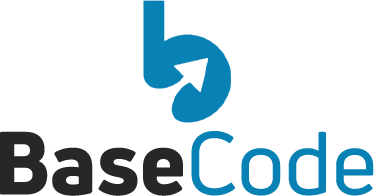Shoppers today want the freedom to buy anything, from anywhere, and have it delivered however they choose. Businesses need to keep up with this by using warehouse software that helps them deliver orders faster.
Warehouse management software (WMS) helps businesses manage their stock and deliveries better. It connects inventory management with modern shopping habits, giving you a real-time view of your stock on your phone or computer – all you need is internet access.
These systems help businesses get the most out of their warehouse space, staff, and equipment. They do this by planning how to move and store items efficiently. These systems are useful for all sorts of businesses, including those that deliver products, make things, or offer services.
In the next part of this article, we’ll explain everything you need to know before buying a warehouse management system. Here’s what this article covers:
Table of Content
– What Is a Warehouse Management System (WMS)?
– Types of Warehouse Management Systems.
– Top 11 Affordable and Automated Warehouse Management Software to Oversee Warehouses Easily.
– How to Evaluate WMS Software Before You Purchase One.
– What can a WMS system do for you?
– WMS Software FAQs
– Want to see a Warehouse management system in action?
What Is a Warehouse Management System (WMS)?
A Warehouse Management System (WMS) is software that helps companies manage daily warehouse activities. This includes tracking goods from when they enter the warehouse until they leave.
WMS software is an important part of supply chain management, providing real-time visibility of a company’s inventory, both in the warehouse and in transit. Besides inventory management, it also offers tools for picking and packing, resource usage, analytics, and more.
With a WMS, you can track inventory and coordinate tasks like order picking, packing, fulfilment, and shipping. It gives you real-time updates on everything in your warehouse, helping you make quick and accurate decisions to improve productivity.
WMS solutions integrate with your existing systems, such as ERP platforms, accounting and shipping software, and hardware like robots and barcode scanners. The WMS collects data from these systems and updates you through its dashboard on stock levels, shipping updates, inventory locations, and more.
A WMS can automate processes, integrate your entire warehouse, and provide real-time data to improve your warehouse operations.
Types of Warehouse Management Systems
There are three main types of Warehouse Management Systems (WMS): standalone, cloud-based, and integrated with ERP or supply chain management platforms. Each type has its own benefits and limitations, and the best choice depends on the specific needs of the business.
Standalone WMS
These systems are installed on a company’s own hardware. They often offer more customization options, although these can be expensive. Companies have full control over their data and software. However, standalone systems usually have higher initial costs. The company is responsible for updates and maintenance, which can become challenging as the system ages and integration with new technologies becomes harder.
Cloud WMS
Cloud-based systems are easier and faster to implement with lower upfront costs. They are provided as Software-as-a-Service (SaaS), making them more flexible and easier to scale according to business needs. Cloud WMS are regularly updated, providing quicker access to new features. The provider handles maintenance and updates, and they often include robust security measures and disaster recovery options. These systems also integrate more easily with other solutions.
Integrated ERP and SCM-based WMS
These warehouse management systems are part of larger supply chain management or ERP (Enterprise Resource Planning) platforms. They work well with other business functions like accounting and business intelligence, offering a comprehensive view of operations. This integration helps optimise processes and improve efficiency, providing a seamless experience across the entire logistics and business chain.
Top 11 Affordable and Automated Warehouse Management Software to Oversee Warehouses Easily
1. Zoho Inventory
Rating: 4.5 (386) on Capterra
Key Features:
– Multi-Warehouse Inventory Management: Manage inventory across multiple warehouses.
– Real-Time Inventory Reports: Get detailed reports for tracking warehouse performance.
– Item Management: Group, customise, manage, and track warehouse items efficiently.
– Vendor Relations: Handle all vendor transactions and bills in one place to maintain strong vendor relationships and data integrity.
– Integrations: Expand your business capabilities with various integrations.
– Automation: Simplify daily processes with automation.
– Smart Features: Utilise advanced technology for more efficient inventory management.
Zoho Inventory is an online tool designed to help you manage orders and inventory efficiently. It supports multi-channel selling, integrates with shipping services, and offers robust inventory control, allowing you to optimise your processes from purchase to packing and payments. It’s suitable for e-commerce businesses, online sellers, retailers, large enterprises, wholesalers, and small to medium-sized businesses.
Zoho Inventory’s pricing is based on the number of users, orders, and warehouses, making it one of the most cost-effective inventory management systems available. Plans start at ₦9750 per organisation per month, covering up to 2 users, 500 orders, and one warehouse.
Unlike many inventory systems that come with built-in integrations, Zoho Inventory is a standalone system. This means you’ll likely need to integrate it with your accounting system and possibly with your POS, asset tracking, and production management systems. However, it also allows you to easily connect with over 55+ Zoho apps that can help you run your business and warehouses. Zoho Inventory also offers strong features for companies that ship inventory internationally.
Pricing: Pricing starts at ₦9750 per organisation per month
Get a 5% discount on Zoho Inventory If you sign up through us today!
2. NetSuite WMS
Rating: 4.0/5 (G2)
Key Features:
– Storage space optimization
– Mobile radio frequency identification (RF) barcode scanning
– Automation for putaway and picking
– Inventory visibility
NetSuite WMS provides modern solutions for common warehouse issues. Its mobile RF barcode scanner allows workers to scan and track inventory using regular mobile devices.
Any changes in inventory status are automatically updated across all connected warehouse systems. The WMS helps create and execute efficient putaway and picking plans, and assign tasks to warehouse staff.
By using NetSuite WMS, you can replace old pen-and-paper methods with a modern approach to warehouse management, improving productivity, saving money, and enhancing customer service.
Pricing: NetSuite WMS requires an annual licensing fee. You’ll need to contact sales for a custom quote.
3.Oracle Fusion Cloud Warehouse Management
Rating: 3.8/5 (G2)
Key Features:
– Support for omni channel fulfilment
– Optimization of inventory operations
– Integration and automation
Oracle Fusion Cloud Warehouse Management helps transform a traditional warehouse into an efficient fulfilment centre. It allows you to connect and manage all your warehouse systems from a single platform, providing complete visibility into your operations.
The software supports omni channel fulfilment, enabling you to oversee multiple warehouses and sales points. It is also scalable, adapting to your warehouse needs as they grow.
Pricing: Custom pricing is available by contacting sales for a quote.
4. Logiwa
Rating: 4.2/5 (G2)
Key Features:
– Real-time inventory visibility and control
– Fully configurable
– Easy onboarding
– Shipping rate shopping
– Pre-integrated with ecommerce, shipping, accounting, and robotics solutions
– Smart automation
– Scalable and adaptable
– Mobile app available
Logiwa WMS is a top choice for warehouses of all sizes, including B2C, 3PL, and DTC facilities. Its pre-built integrations make it easy to connect with your existing warehouse systems, ensuring seamless data exchange.
With Logiwa, you can access reports and real-time insights directly from your dashboard. The integrated data also helps automate storage, picking, packing, and shipping processes.
Logiwa WMS is user-friendly and highly configurable, making onboarding simple and allowing you to customise it to fit your warehouse’s specific needs. It offers quick time-to-value and cost savings, with lower professional service fees for deployment.
Logiwa’s AI-powered tools, like automated rate shopping and shipping suggestions, save time and effort. Customers often see a 40% increase in labour efficiency. For instance, one client saves up to three hours daily and over $1,200 monthly through automated address verification and shipping box assignment.
Other benefits include its cloud-native design and mobile app, allowing you to monitor and manage your warehouse remotely. Logiwa’s scalability ensures it can grow with your business and adapt to changing order volumes.
Pricing: Pricing is based on the size and stage of the business.
5. SAP Extended Warehouse Management
Rating: 4.1/5 (G2)
Key Features:
– On-premise and cloud deployment options
– Automation control
– Supply chain management
– Storage and internal process control
SAP Extended Warehouse Management (EWM) software is ideal for warehouses looking to grow from small to large order volumes. It integrates with your warehouse systems, providing real-time insights to help you quickly adapt to changing business conditions.
You can choose to deploy SAP EWM as either a cloud-based solution, which offers greater scalability, or as an on-premise solution, which provides enhanced data security and control.
Pricing: For pricing, you need to contact SAP for a custom quote.
6. Microsoft Dynamics 365 Supply Chain Management
Rating: 3.7/5 (G2)
Key Features:
– Inventory planning and forecasting
– Order management and pricing
– Warehouse fulfilment automation
– Apps for Android, iOS, and Windows
Microsoft Dynamics 365 Supply Chain Management is a comprehensive solution for managing warehouses across various industries, including retail and manufacturing. Its forecasting tool helps predict demand accurately, allowing you to stock your warehouse efficiently and avoid stockouts or overstocking.
The software is versatile and can be adapted to your warehouse’s evolving needs. With the additional Dynamics 365 Intelligent Order Management tool, you can centrally manage and track all orders using AI.
Pricing: Pricing starts at $180 per user per month.
7. SkuVault
Rating: 3.7/5 (G2)
Key Features:
– Amazon FBA integration
– Inventory management and reporting
– Pick, pack, and shipping automation
SkuVault helps retailers of all sizes grow their ecommerce business by automating inventory tracking, picking, and packing. Its digital picking feature, Hyper Picking, reduces human error and speeds up the picking process.
Pricing: For businesses processing up to 2,000 orders per month, SkuVault is available at $449 per month. Pricing increases with higher order volumes.
8. TECSYS Warehouse Management
Rating: 4.5/5 (G2)
Key Features:
– Inventory management and visibility
– Flexible workflows
– Intuitive and easy-to-use technology
– Visual logistics
TECSYS WMS helps warehouse teams fulfil more orders and increase revenue. Its Visual Logistics tools provide workers with clear visual instructions for picking and packing, reducing errors and boosting efficiency.
The software scales and adapts to your warehouse needs as your customer base and order volume change. Its advanced features ensure your organisation remains competitive in the evolving logistics industry. The intuitive interface and configurable options make onboarding and customization easy.
Pricing: For pricing details, contact the TECSYS sales team.
9. Blue Yonder Luminate
Rating: 4.1/5 (G2)
Key Features:
– Intuitive and configurable interface
– Real-time inbound and outbound processing
– Unified inventory and warehouse visibility
– Intelligent inventory management
Blue Yonder Luminate optimises your warehouse’s customer service by reducing order fulfilment time through automation and improved picking processes.
This WMS also provides end-to-end control and visibility for better inventory management. By using Blue Yonder, you can lower operational costs and boost warehouse productivity.
Pricing: For pricing details, you need to contact the sales team.
10. ShipHero
Rating: 4.2/5 (G2)
Key Features:
– Easy integration with one click
– Inventory and order management
– 24/7/365 support
– Automation rules
ShipHero WMS is perfect for ecommerce and retail businesses aiming to speed up shipping and improve inventory management. It offers various solutions to enhance picking, packing, and shipping processes. For instance, it provides picking plans to help pickers work more efficiently.
In addition to fast shipping, ShipHero helps you save money by comparing shipping rates and selecting the most cost-effective option.
Pricing: Pricing starts at $1,995 per month, while for 3PLs, it starts at $2,145 per month.
11. Fishbowl
Rating: 4.0/5 (G2)
Key Features:
– Tracking inventory across multiple locations
– Barcode printing and scanning
– Management of order fulfilment
– Automation of picking and packing
Fishbowl stands out as a top WMS software for retailers and ecommerce businesses aiming to simplify inventory and warehousing processes. It enables accurate inventory tracking and management of all warehouse operations. Key features include managing inventory across multiple locations, efficient order fulfilment, and seamless integration with other warehouse systems.
You can choose between the cloud-based or on-premise version of Fishbowl.
Pricing: The cloud-based option starts at $349 per month, while the on-premise platform starts at $399 per month.
How to Evaluate WMS Software Before you Purchase One
There are many WMS software options available, but they vary in quality. To choose the best WMS for your facility and business goals, consider these factors: price, features, and ease of use.
Price
Avoid picking a WMS solely based on it being the most expensive or the cheapest. An overly expensive WMS might strain your budget, while a very cheap one might lack necessary features. The ideal WMS should fit your budget and provide the features needed for your warehouse optimization.
Features
Each WMS has its own features. Look for a WMS with a wide range of features such as easy integration with your existing systems, inventory tracking and management, order fulfilment, and reporting and analytics. The software should also be scalable to meet your needs as your order volumes change.
User-Friendliness
A user-friendly WMS will help you quickly start improving your warehouse operations and customer experience. A system that is easy to use ensures a quicker return on your investment.
What can a WMS system do for you?
A good Warehouse Management System (WMS) can improve all activities in and out of the warehouse, as well as those affecting the broader supply chain, from receiving and storage to picking, packing, and shipping. Here’s how a WMS supports these activities:
Receiving and Put-Away
A WMS optimises how companies receive, process, and store items, using business rules and warehouse flow. Before WMS, manual methods like pen and paper were used for receiving items and matching them to purchase orders, and some small warehouses still do this. In a 2018 Peerless Research survey, 87% of respondents managed receiving manually. A WMS can automate receiving with RFID technology, barcode scanning, and integration with billing software, ensuring items are quickly and accurately logged and stored.
Inventory Management
Warehouse management software provides real-time visibility of inventory across all locations, including items in transit and in stores. It uses barcodes or RFID for tracking and supports cycle counting and demand forecasting with advanced analytics. These features help maintain optimal inventory levels, ensuring enough stock to meet customer demand. Accurate tracking improves order accuracy and speeds up inventory movement in and out of the warehouse.
Order Picking, Packing, and Fulfilment
Packing and fulfilment primarily occur in the warehouse, with order picking costs comprising 55% of total warehousing costs according to ResearchGate. WMS systems reduce these costs by guiding efficient storage, retrieval, and packing processes. They support various picking technologies, such as RF scanning, pick-to-light, pick-to-voice, robotics, and optimization algorithms. WMS solutions also facilitate different picking and fulfilment methods, like batch picking, zone picking, cross-docking, and wave picking, streamlining the order fulfilment process.
Shipping
Many WMS integrate with transportation management software, expediting fulfilment by generating shipping documents automatically and sending shipment notifications. Real-time tracking ensures packages arrive on time and at the correct location. Effective shipping management means most shipments leave the dock on schedule and reach their destination promptly.
Labour Management
A WMS provides insights into labour costs and productivity, helping warehouses operate more efficiently. It offers real-time visibility into worker activities, costs, and productivity trends, allowing for quick adjustments. Systems often support task interleaving based on priority or proximity, reducing travel time and increasing efficiency. They also assist in planning and scheduling. Some WMS mas also allow you to integrate your CRM systems, so that you can get easily manage customers interaction as well as inventory.
Yard and Dock Management
WMS features for yard and dock management help truck drivers find loading docks quickly. Cross-docking support is especially useful for perishable goods, matching incoming goods with outgoing shipments. The system checks receiving scans against sales orders, directing items to cross-docking areas when needed.
Warehouse Metrics and Analytics
A WMS automates data collection, reducing errors and speeding up processes. This data integrates with analytics to track key metrics like on-time shipping, inventory accuracy, distribution costs, and order cycle time. The system creates visual reports for stakeholders, aiding in decision-making and operational adjustments.
WMS Software FAQs
How can the best WMS software impact customer satisfaction?
The best WMS software streamlines and automates order processing and fulfilment, resulting in faster deliveries and fewer errors, which leads to happier customers.
How do I determine which WMS software is the best for my company?
To find the best WMS software for your company, consider factors like your business size, specific industry needs, integration capabilities, ease of use, scalability, implementation time, and budget. It’s also helpful to request demos and read user reviews.
How does the best WMS software improve warehouse efficiency?
The best WMS software provides real-time inventory tracking, optimises picking and packing processes, reduces human errors, and offers data analytics for better decision-making, all contributing to increased warehouse efficiency.
Can the best WMS software integrate with other business systems?
Yes, most top WMS software solutions can integrate with ERP systems, e-commerce platforms, and other business tools to ensure smooth data flow and better operational efficiency.
Is training required to use the best WMS software?
While the best WMS software is designed to be user-friendly, training is often recommended to help users fully utilise the system’s features. Our IT support experts at Basecode Tech can assist with implementation, migration, troubleshooting, and training for your WMS systems. Just book a call, and we will get in touch.
Want to see a Warehouse management system in action?
Interested in seeing how a Warehouse Management System (WMS) can transform your operations? Book a free discovery call with our IT support team. During this call, you’ll get a demo of our WMS systems and have the opportunity to ask any questions you may have. Discover how our solutions can optimise your warehouse processes and improve efficiency. Don’t miss out on this chance to see the benefits firsthand—schedule your call today!




0 Comments